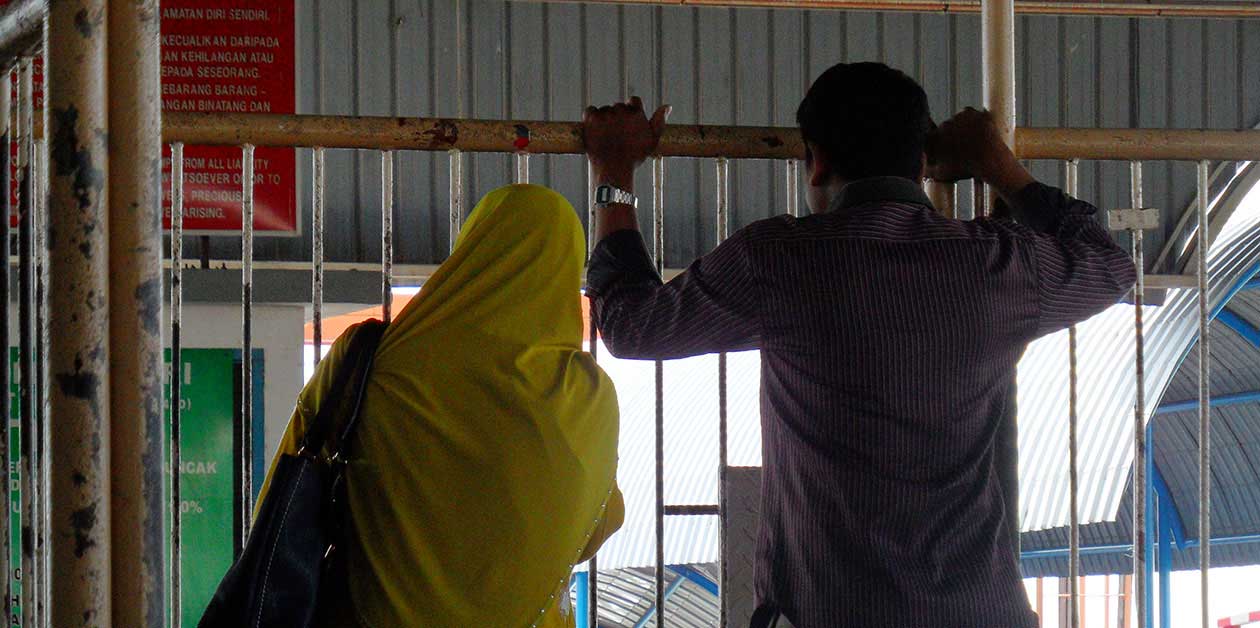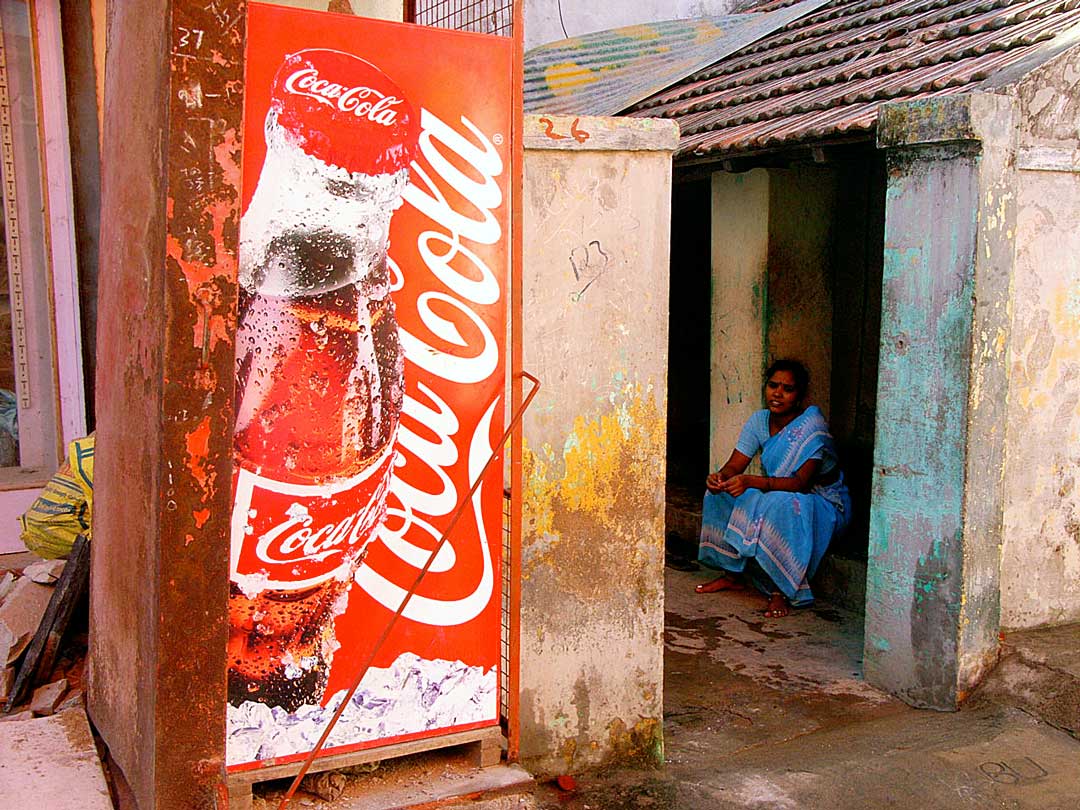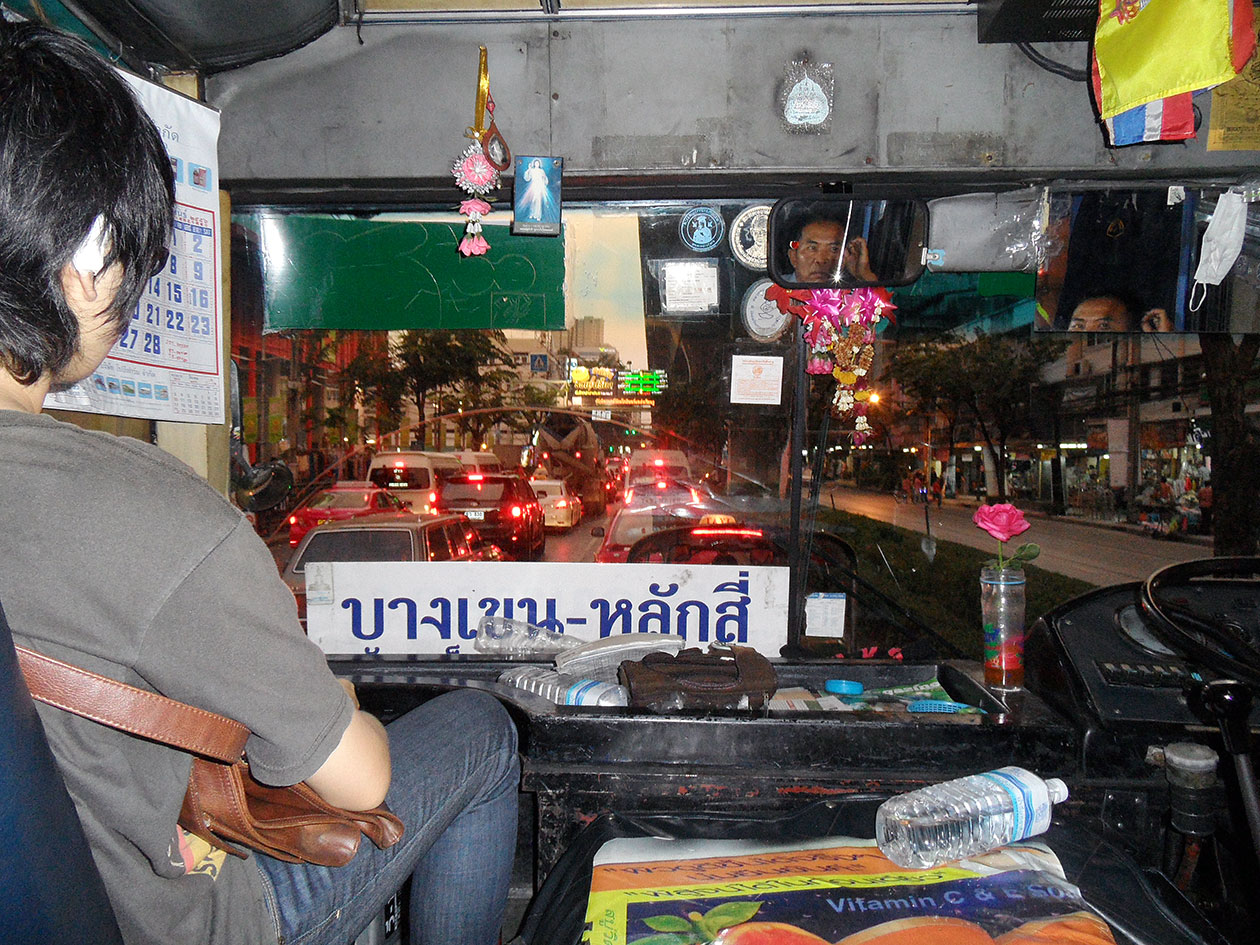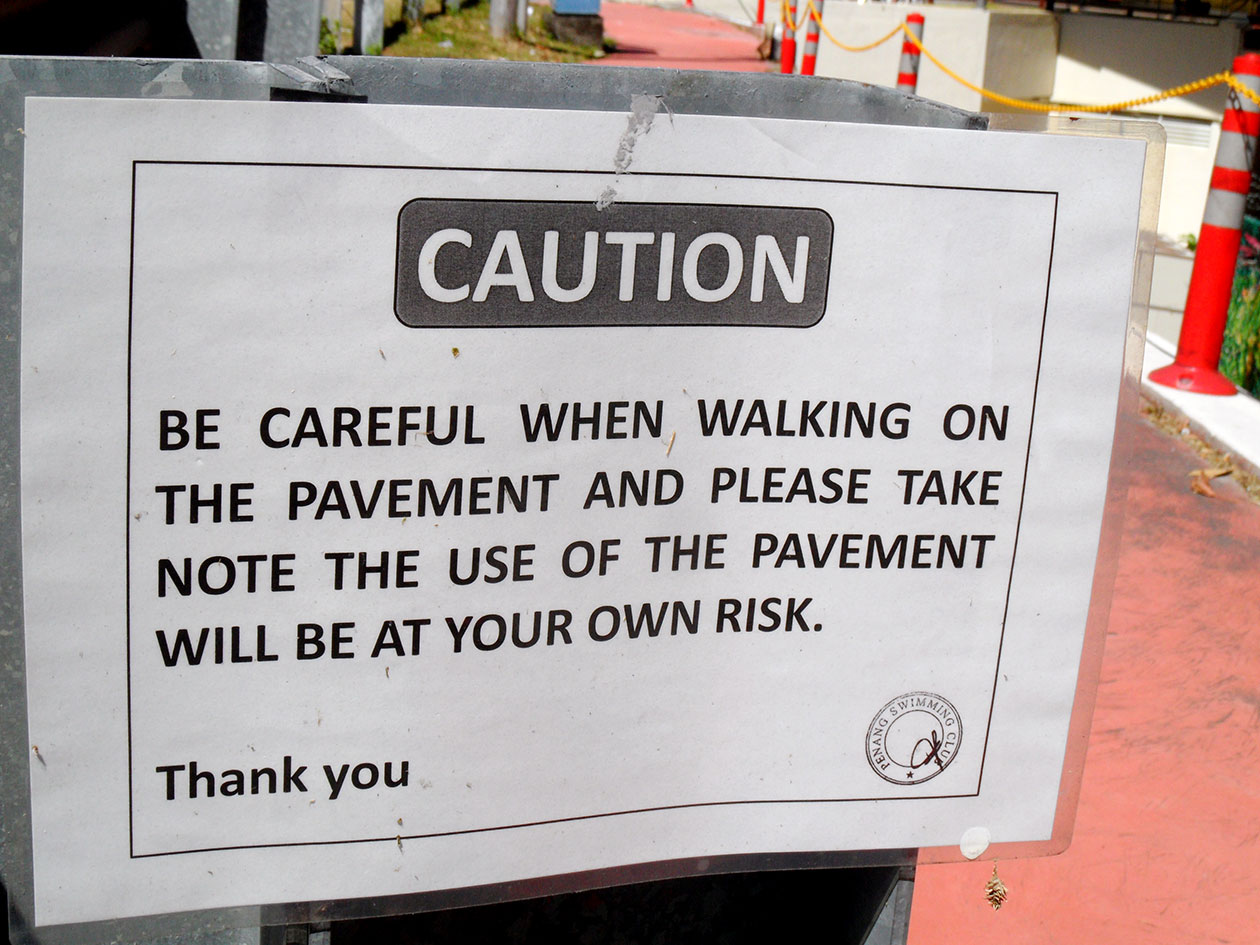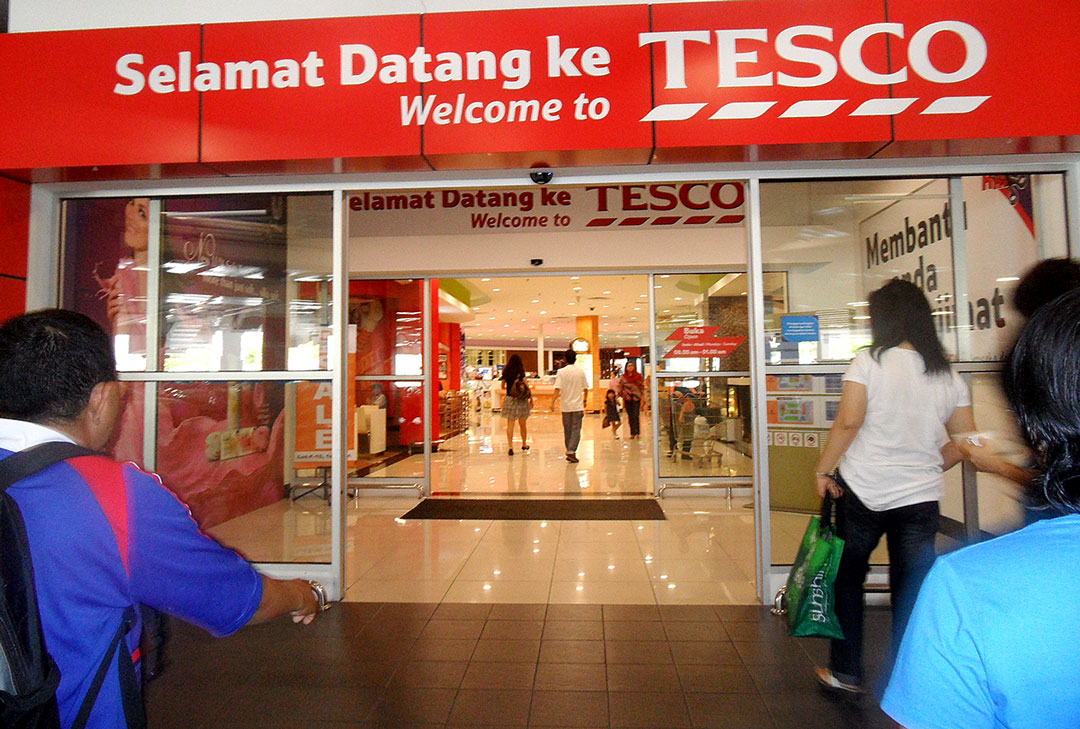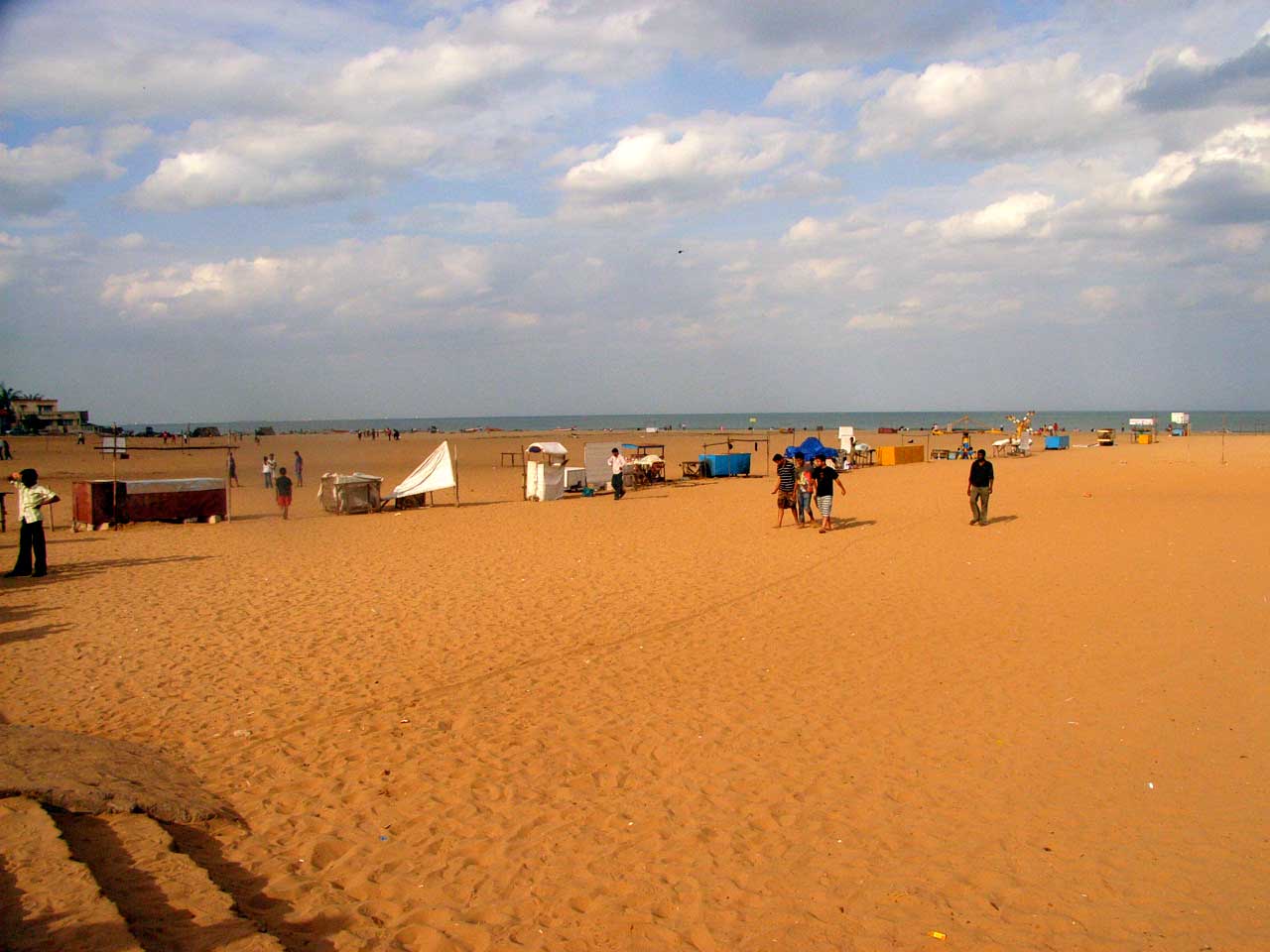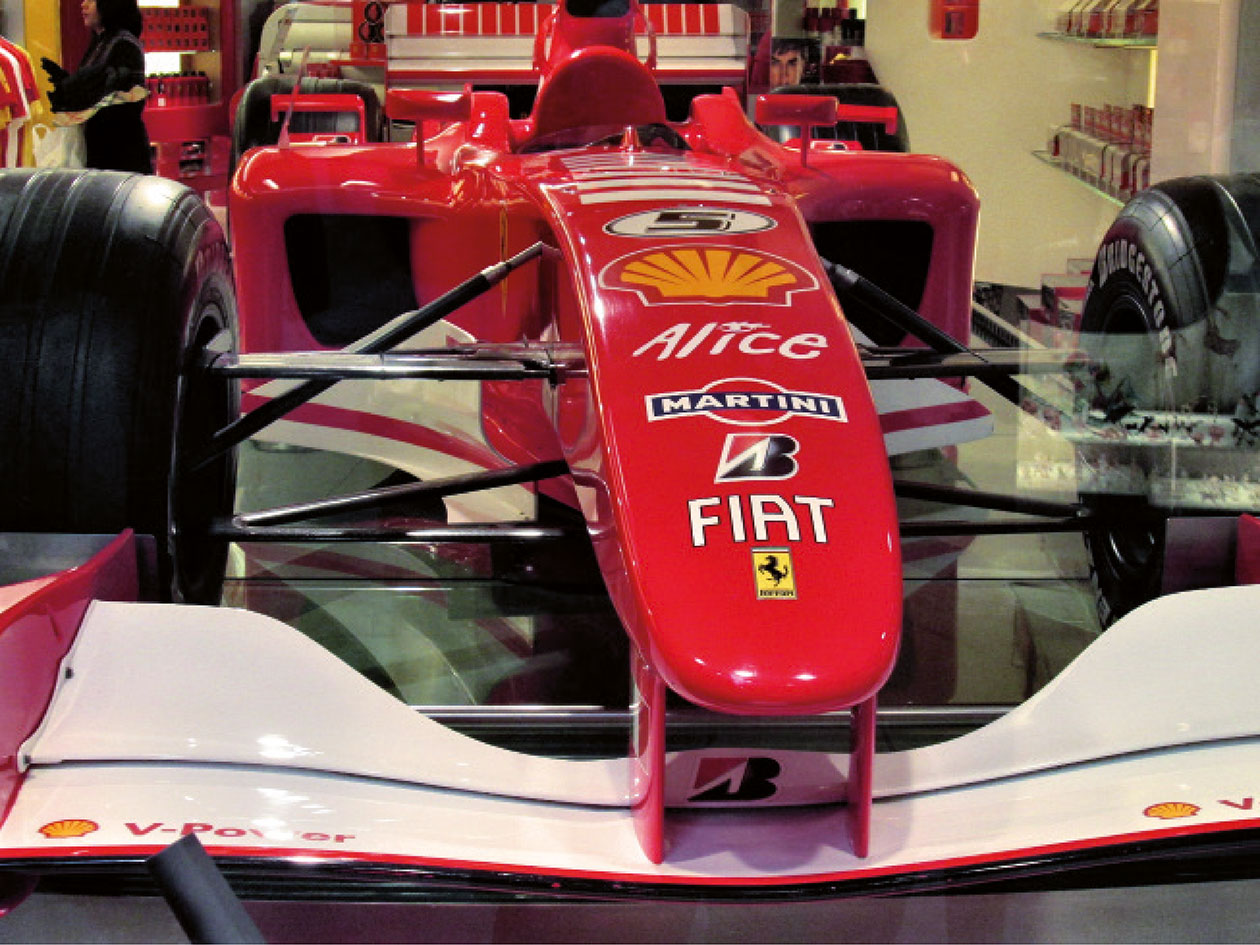
A History of F1 Design
March 18, 2014
“Where the bee sucks, there suck I!”
March 23, 2014In their excitement to promote economic development Asian countries seem willing to compromise everything in pursuit of profit and land exploitation. But Pamela Nowicka contends there are powerful arguments with which to fight back and defend environmental values in the region.
Pamela Nowicka
They asked me to write about the impact of neoliberalism in Asia. ‘Something new’ they said, ‘Spirit of Spring’, they said, ‘renaissance, rebirth, novelties’ they said. Sleepless nights in the expat hive, days by the pool, conversations about dengue and another bout of smog from Indonesia caused by burning ancient forests for palm oil plantations. The usual sense of impotent rage and anguish… I wrestled with my conscience…and my conscience won…
To many ordinary people and – judging by their actions – all politicians, business people and economists, the wild is free. The biosphere as a living smorgasbord of plants, animals, land, water and minerals – tasty snacks to be exploited – destroyed – at will, generally by those with the most cash and the greatest desire for more. All in pursuit of a neoliberal fairytale of mindless and endless economic growth.
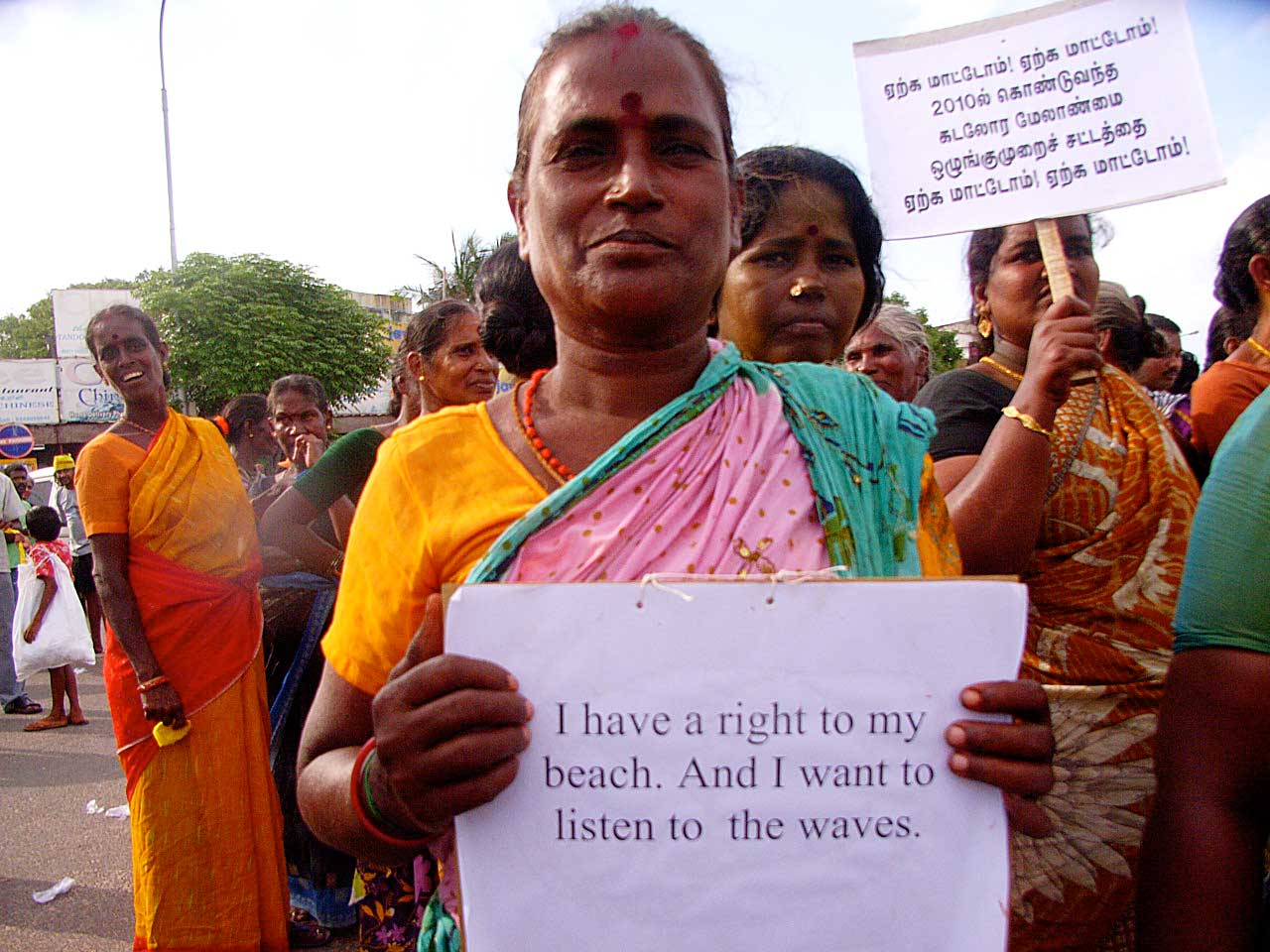
Demonstrators against the proposed
World Bank funded elevated highway
project over the beach in Chennai, South India.
With the ‘infinite-economic-growth-defined-as-progress’ story comes the notion that the environment or being green or eco-friendly is an optional extra that can perhaps be considered once the serious things, the financials, are in place. Something for kids to learn about, plant a few CSR (corporate social responsibility) saplings, donate to an orphanage, but irrelevant to adults and the serious business of LIFE i.e. business, making money and exerting power and control.
The dominance of economic theory – yes, it is a theory not a fact – in public discourse is highlighted by the fact that every media outlet has its business sections, programmes and correspondents; we have blow-by-blow descriptions of what is happening with the Dow, the Nikkei, while the environment is relegated to the occasional ‘disaster -flood/smog/dead pigs in the river – story’, with no effort to contextualise how the flood/smog/dead pigs got there in the first place.
In Asia, the usual gang of business and political suspects have picked up the neoliberal ball and run with it, replacing rainforests with palm oil plantations, mangroves with shrimp farms and coastlines with condos. For the neoliberals, ‘progress‘ equals walled enclaves, roads, mines, factories, pollution, and extinction. Environmental Armageddon ASAP is the name of the game.
China, once hailed as the economic powerhouse of the world, is now facing appalling problems of contaminated air, so severe that people routinely wear face masks. Contaminated baby milk formula has caused infant deaths, and heavy metal contamination has even been found to exist in the country’s staple food, rice.
A potential flag-bearer for some kind of Asian renaissance, Malaysia, is at an interesting point in terms of ‘development’ and the kind of future it is creating for itself. It needs to avoid the middle-income country trap, but is following the neoliberal notion of unfettered economic growth as the way forward. The impacts of infinite growth on finite and diminishing natural resources and quality of life remain largely unexamined in public discourse.
Thailand is experiencing public mobilisation, while in Cambodia, striking garment workers, giving their all for the neoliberal dream of cheap, throw-away fashion for predominantly western brands, have been shot and systematically abused by their own police. And don’t even get me started on India. All. Bad. News.
But for the neoliberal dreamers, closeted in their shiny, security-guarded towers, dining with politicians and presidents, this is just an omelette/eggs situation. The Indonesian smog, water shortages and species extinction are all ‘just one of those things’. You can’t make a development omelette without breaking a few environmental eggs. So all the eco-warriors, greens and environmentalists should stop whining, plant a few saplings, go back to their turtle-watching and let the grown-ups get on with the serious work of development, Singapore-style.
NGOs and the few civic society groups around are seen as a ‘thorn in the side’ of politicians, causing ‘trouble’ and challenging the onward march to prosperity i.e. profits for the few, ecological breakdown and lower quality of life for the many.
A recent letter to the New Straits Times, headed Be Rational about Land Clearing, epitomises the attitude, rationale and emotional tenor of this discourse in the context of clearing hills in Penang Island, Malaysia, for ‘development’, in other words, construction. ‘I am a developer and do not take kindly to being called a rapist of virgin jungles,’ says T K Chang, from Selangor. ‘There are no two ways about it. Land has to be utilised for development, whether for agriculture, infrastructure or property. So long as the clearing of land is carried out responsibly and according to engineering standards, it should not be labelled as (sic) ‘rape’. How else can development be carried out otherwise?’
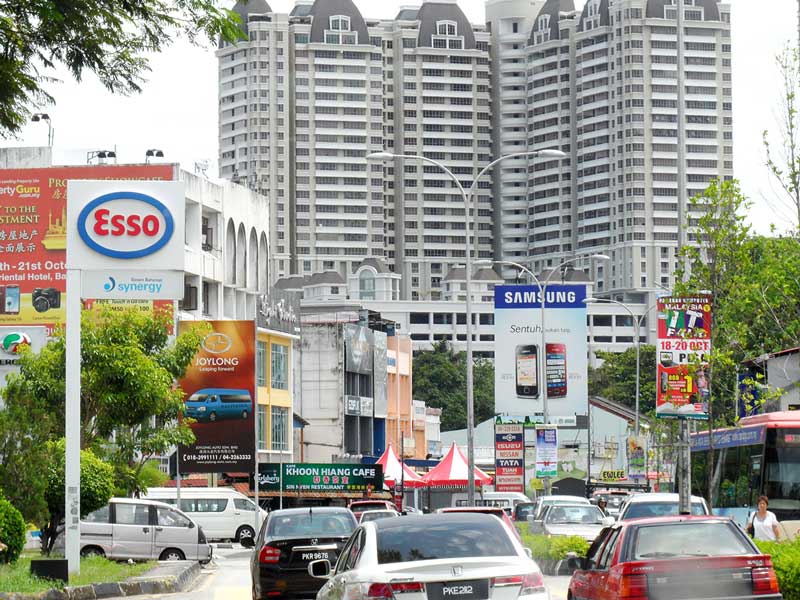
Street sign in Tanjung Bungah, Penang, where pavements are rare and pedestrians have to walk alongside speeding traffic
In this heartfelt opening, TK Chang articulates the neoliberal ‘development’ argument. However, along with proponents of the model, including governments, transnational corporations (TNCs), and global institutions like the World Bank, key assertions are un-examined, in a trope which is as partisan as it is unrealistic – and, some might say, irrational.
To unpick a few threads. A prevailing refrain in the neoliberal discourse is that ‘land’ is just there, flopping around uselessly, not really contributing anything to anyone, just waiting to be turned into something useful, namely, money. Useless, empty land can be turned into money in a variety of ways: theme parks, shopping malls, housing developments, condos built for investment, etc. And if the developer graciously plants a few trees or throws in a small park, jogging track or artificial lake, this means they have now created a ‘green’ environment.
What those schooled in the neoliberal nirvana model simply fail to get is that what they see as empty, useless land/forest/hills just waiting to be turned into something useful, like cash to buy designer clothes and handbags, is, in fact, an ecosystem of tens of thousands of living organisms, from bacteria to birds, from trees to termites, from streams to insects, interlocked in a balanced, life-preserving dynamic…and absolutely vital to living life as we know it.
This ecosystem will be contributing fresh water, fresh air, pollination, breaking down waste products, and much much more. It is part of a global, ecosystem, the biosphere. Three key facts about the biosphere: 1) it is all interlinked 2) change one element and everything else changes 3) it is vital to the survival of all life on earth, including humans.
As a dynamic, self-balancing system, the biosphere can roll with a certain number of punches inflicted by neoliberal ‘development’. But some changes, like increasing amounts of CO2 in the air start to effect the homeostatic balance of the system, creating feedback loops which alter the dynamic. If these feedback loops increase beyond a certain level, a tipping point is reached, beyond which the biosphere is unable to restabilise itself.
Cleared hills are vulnerable to landslides; property is vulnerable to subsidence and collapse; unreplenished water tables create problems with water supply while loss of habitat and increased competition lead to species extinction. Smog and water shortages detract from the quality of life and create health problems. Is this the future we want?
As far as the neoliberal hegemony of politicians, business leaders and TNCs is concerned, none of this matters compared with increasing profits. And if it does happen, it will be in ‘the future’ and some techno fix will sort it all out. Forget Arctic ice melting, temperatures of 47C in New Delhi last April; forget the record amount of smog from burning forests in Sumatra, forget drought and crop failure in the US, India and the UK.
From the so-called ‘natural’ disasters of 100,000 people losing their homes due to flooding in Calgary, Canada in June 2013, to Typhoon Haiyan devastating the Philippines, extreme weather is the outcome of the neoliberal vision of global industrialisation. And when the environmental chickens come home to roost we should all be afraid.
Which, brings us back to TK Tang. He asserts, reasonably enough, given the paradigm in which he is operating, ‘So long as the clearing of the land is carried out responsibly and according to engineering standards it should not be labelled as ‘rape’.’
But, what is meant by responsibly? Is it ever responsible to clear large tracts of ecosystem, developed over millennia and integral to the production of water, oxygen, and contributing towards stable weather systems? And if it is, why would engineering standards be the criteria? Other (environmental?) criteria might be more applicable, for example: number of species lost, amount of water production lost over the next decade (or century or millennium); percentage of contribution to climate change/extreme weather and subsequent loss of life (human and non-human) and reduction in quality of life.
Neoliberals might assert that these things are impossible to measure and that there’s plenty more empty, useless land to pick up the environmental slack. The rate of species extinction and extreme weather happening on a daily basis might strongly suggest this is wrong.
What about the other point, again, apparently reasonable, that people need homes, which take up space, and an infrastructure and then they need food, which has to be grown somewhere?
Decentralisation is the answer. Living and working local communities which grow their own food, the Kampung Baru model (a historic Malay village enclave at the heart of Kuala Lumpur), rather than the megacity model. A global Kampung, where gated communities and condos for the elites are a thing of the past, and ‘human-centric’, livable environments are created to co-exist in harmony with nature, rather than trashing it. Building homes and working to create secure, inclusive communities, rather than investment condos and gated developments might mitigate the need for destroying more hills. Creating quality of life for the many, rather than mega-profits for the sociopathic few.
Critics may say this is an empty dream, a step backwards, but already, in many places, a new vision of progress is emerging. From cycling in Bogota to urban farming in Singapore; from guerrilla gardening in New York to rooftop smallholdings and urban orchards in London, a different future is emerging. The inspirational film “Urbanized” shows some of the ways in which communities and governments globally are addressing these issues.
So far, so green. But on a macro level, so often, it all goes horribly wrong. In an attempt to deal with traffic congestion, a new one-way traffic system was introduced in Penang. As the Consumer Association of Penang (CAP) commented: “This is a retrogressive measure as it places emphasis on moving cars at the expense of the community, pedestrians, cyclists and the disabled…The community runs the risk of being destroyed by wide one-way streets which are a safety threat. Crossing the wide streets with fast moving traffic [and, incidentally, no pedestrian crossings or lights] is a nightmare. The conversion of traffic to a one-way system is like bringing a high-speed highway into the neighbourhood”.
CAP continues: “The authorities should seriously think about pedestrianisation and building segregated cycle paths. This would integrate and improve the community, reduce accidents and air pollution and improve the health of residents. Traffic should, in fact, be slowed down in the area with traffic calming. The one-way system has reduced the accessibilty of buses to passengers, forcing pedestrians laden down with shopping to walk long distances and cross the dangerous one-way streets to catch the buses.
We should be planning more for residents and the community. Accessibilty is not about moving cars, it is about moving people. Giving priority to cars is wrong. Speeding up the traffic with the one-way system endangers pedestrians, cyclists and motorcyclists. Roads are for all users, not only cars”.
Well said, CAP…and dream on. The Asian cultures are far more hierarchical than Europe or the Americas. Civic society groups are few and far between, are often insular, and poorly supported and regarded within the larger society. They have little power and their voices are small. Asian political systems are fairly ready to crack down on the hapless protestor in order to maintain the wealth and power of entrenched elites. The future for Asia is unclear.
We want to be comfortable, safe and secure. We want to be happy. And we need climate stability, clean water, healthy food, breathable air and green spaces. Without these basics, we have nothing. As the meme goes, ‘If you want to find out which is more important, the economy or the environment, try holding your breath while you count your money’. Far from being an optional extra, to be doled out when the sensible work of exploitation and profit have been taken care of, a healthy environment is fundamental to life on earth, and quality of human life.
Perhaps one day the neoliberal lies will be challenged and a true renaissance will happen across Asia. Streets will be pedestrianised, the environment prioritised over economic growth, and in Penang, the rolling hill slopes declared a nature park by TK Chang Sdn Bhd (Ltd.) Some day, one day, in a beautiful place, where the wild is free…and the most valuable thing there is. In the meantime, the Greening of Asia story will have more to do with the pursuit of the US dollar than the preservation of that rarest and most precious resource, the environment.



